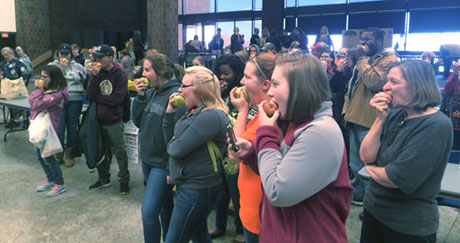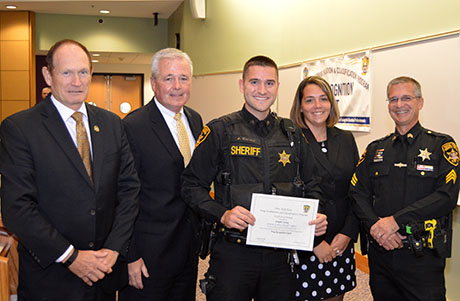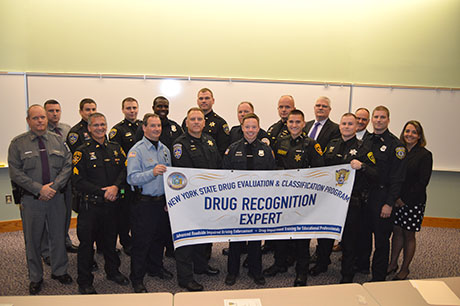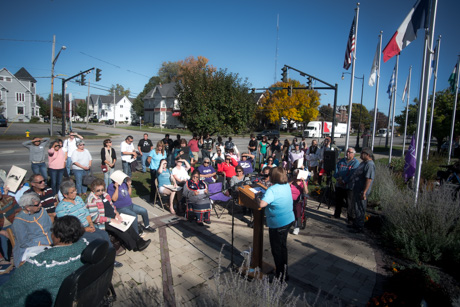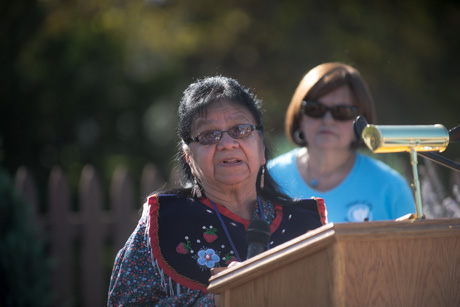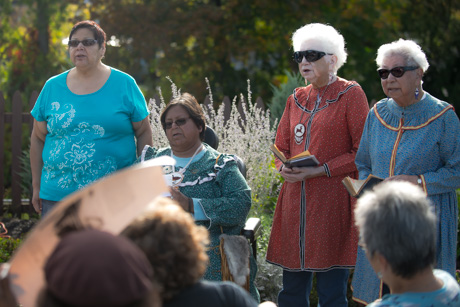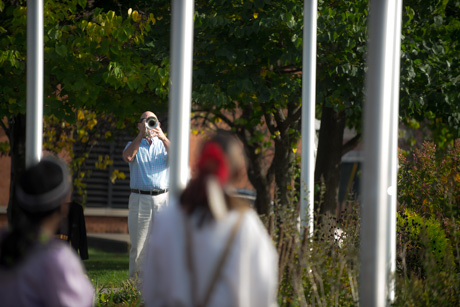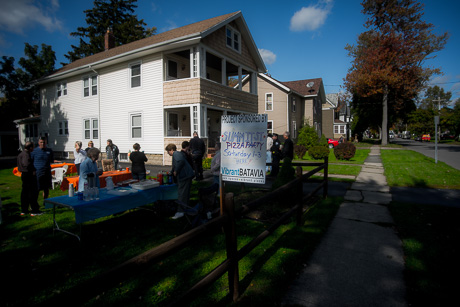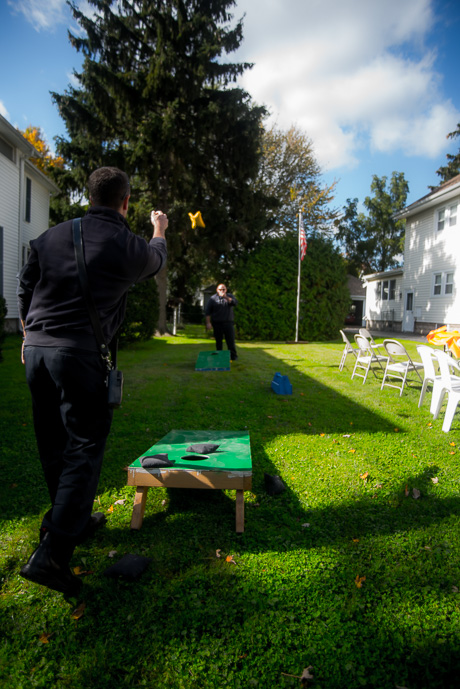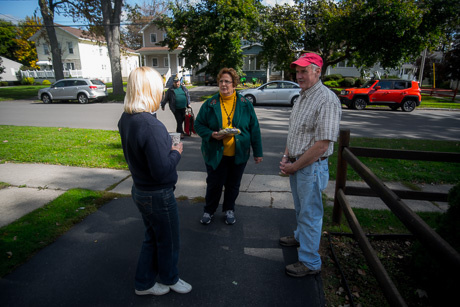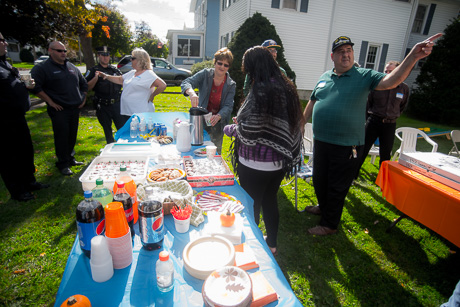A year ago, the problems on Summit Street included drugs and public domestic disputes and a general sense that the bad guys were winning, so a couple of neighbors started talking about how they might solve the problem.
Det. Rich Schauf got involved along with other members of Batavia PD. Leanna Di Risio from Vibrant Batavia was brought in. Residents started holding monthly meetings. Police started communicating more directly with residents. People started looking out for their street. Things changed.
This week, the biggest concern on Summit Street is a few skunks who have been wandering around the neighborhood.
"When the police issues identified come down to that, that obviously says a lot," Di Risio said during a neighborhood pizza party on Saturday. "I think when people see that neighbors are coming together, and they have that bond and they're looking out for each other, it makes for a better neighborhood."
Don Hirons, his wife Pam, and another neighbor got the ball rolling about a year ago, and soon they were talking with a couple of other longtime residents, including Richard Beatty, and that led to direct communication with law enforcement about what could be done. Word of the conversations reached City Manager Jason Molino who thought this was a perfect project for Vibrant Batavia. Together, they started holding monthly meetings at City Hall, with attendance at the most recent meeting attended by 20 residents of Summit Street.
"Rather than just sitting still and letting things happen, we thought maybe we need to do something," Hirons said. "We can't just sit back. We've lived on the street 35 years. That's a big investment of time. We've seen a lot of people come and go. There's a lot of homeowners who are not with us anymore and some of those homes have been turned into rentals. We've got folks we see come and go, so I guess what I'm saying is we didn't want to see this street -- we've seen it when it was a place where you didn't mind bringing your kids out -- to one where you had to be more careful. Both my wife and I saw that happening and we felt it was important to make sure to preserve the integrity of the street."
The way police have patrolled Summit Street hasn't really changed, Schauf said, nor is it any different from streets facing similar issues, but what has changed is the communication, and that has made a huge difference. When arrests are made, and as cases make it through the legal system, the department communicates with a resident about what has happened and that information is shared neighbor-to-neighbor. That gives residents confidence that action is being taken, raises their awareness and encourages them to continue to report issues immediately as they arise.
"Our department has 30 sworn officers," Schauf said. "There are 15,000 people who live in the city and during the day, there could be between 25,000 or 30,000 people here, so you do the math. You're always outnumbered, so without eyes and ears, without generally good people, we'd have chaos. To have people with eyes and ears and willing to share information so we can react to it, whether it's anti-social behavior or it has to do with quality of life, we can deal with it quickly."
When neighbors look out for each other, Schauf said, it helps encourage people less interested in being good citizens to find different locations for their criminal activity.
"Crime prevention isn't about crime going away," Schauf said. "It's about crime moving, because if we could do away with crime, we would have done that by now, but we can't. So it's about pushing crime down the road. It's not at your house and you're protected and you're helping your neighbors, that's going to push crime out of your neighborhood."
The residents of Summit Street feel so good about what they've been able to accomplish, they've had two parties this summer and fall. Earlier in the year they had an ice cream social. They're talking about a block party next summer and shutting down Summit Street for the afternoon.
Di Risio said there's also a lot of interest in forming more of a neighborhood association, which would include a classic welcome wagon for new Summit Street residents, and signs on the streets -- but not the negative message of a "Neighborhood Watch," but something with a more positive spin about how residents care about each others' well being.
"The best part of this is you start getting to know people," Beatty said. "You know their situations and a little bit about their families. It's been very encouraging. It's been a positive experience the way it's been going. Before this started, I didn't know Don and Pam. I didn't know the folks down the street or the folks on the corner, or any of them, so it's been a very positive thing."
The fact that the biggest issue on Summit is skunks is a good thing, Schauf said, but that isn't the end of the story.
"I've done this long enough to know that problems come and go," Schauf said. "So, right now, I'm not saying, 'This is great, we've solved it. We're the best and the neighborhood is well on its way to no problems.' I think there could still be problems, but we can react to it not just as one person complaining, but as a group, and when a group looks out for each other, it makes them stronger."






